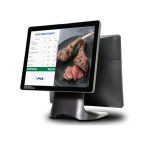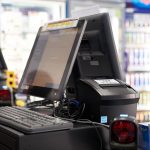No products in the cart.

Operating a business require you to take several roles outside of being a business owner. You will need to handle administrative, marketing and operations. To not stretch yourself too thin, you will need to delegate certain tasks to others. Such help does not limit itself to the actual workforce, but it also extends to implementing automated systems.
A popular handy device to have is a Point of Sale (POS) system that functions more than a mere cash register. Typically comprising of software and hardware components such as the monitor, cash drawer and receipt printer, they ensure your business run smoothly. Here are some functions that an ideal POS system should have:
Computerised Transaction
Most POS systems these days don’t require retailers to manually ring and record transactions anymore. Our current stage of technology allows the transaction to be entirely computerised, and this spells several benefits for you
Data and Reports
Data is everything in a business. You’d need existing data to plan on your next move going forward and the overall business trajectory.
A smart POS system will not only accumulate all the data gathered but also generate reports that reflect the collected data. This will save a lot of time on your end and you can spend less time trying to compile large amounts of data when a machine can do it for you! You can now use your time more efficiently and focus on the other aspects of your business.
Inventory Management
Along with data collection, you may want to look into a POS system that has built-in stock control features. POS systems, like the EPOS POS system, will not only accumulate data but also allows retailers to track their inventory.
This means that you will have access to your purchase order, delivery order, goods received and products sold. This POS system will go even further by calculating the number of goods you will need to order for your next delivery. It’s a retailer’s dream to not fret over having too little or too much over a specific product.
Sales and Marketing
Sometimes, you will need to run specific sale promotions to either remove dead stock or increase profit during a celebratory event such as Christmas. Your POS system will thus need to be able to support your sales and marketing efforts. A POS system with an easy navigation interface will make it easy for you to implement offers and discounts.
Customer Management
Most POS systems allow you to store information on your customers and if needed, help build their profiles. This is especially helpful if your business depends on returning customers. POS systems, like the EPOS POS System, allow you to keep track of customers’ profiles and manage their membership system. With this smart system, you can even track any promotional or marketing emails.
Employee Management
Employee management is also a feature that you may want to take into consideration when purchasing a POS system. This function will allow you to track your employees’ hours and performance. You will be able to see who are your top performers or identify employees who require extra guidance. You are also able to create and modify their schedules according to sales.
Conclusion
Compared to a standard cash register, an advanced point of sale system is undoubtedly pricier. As such, you may hesitate to include them in your business. However, if you have a steady cash flow and are looking for ways to innovate your business to make it even more efficient, buying such a machine will be a worthwhile investment. Not only will you save time, but you will be making better decisions and create a better shopping experience for your shoppers. All of these will translate to a healthier business for you.
Was this article helpful?
YesNo



